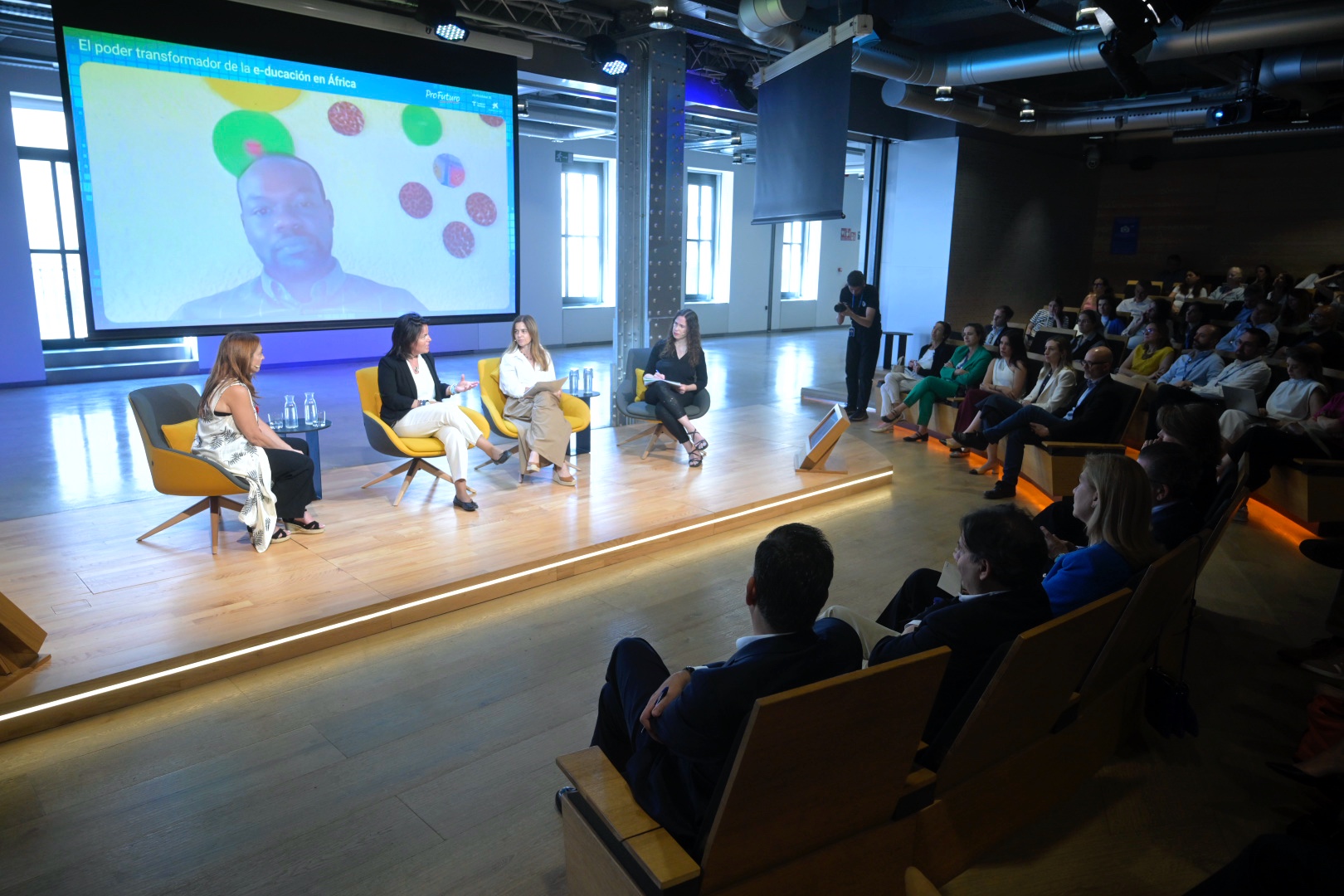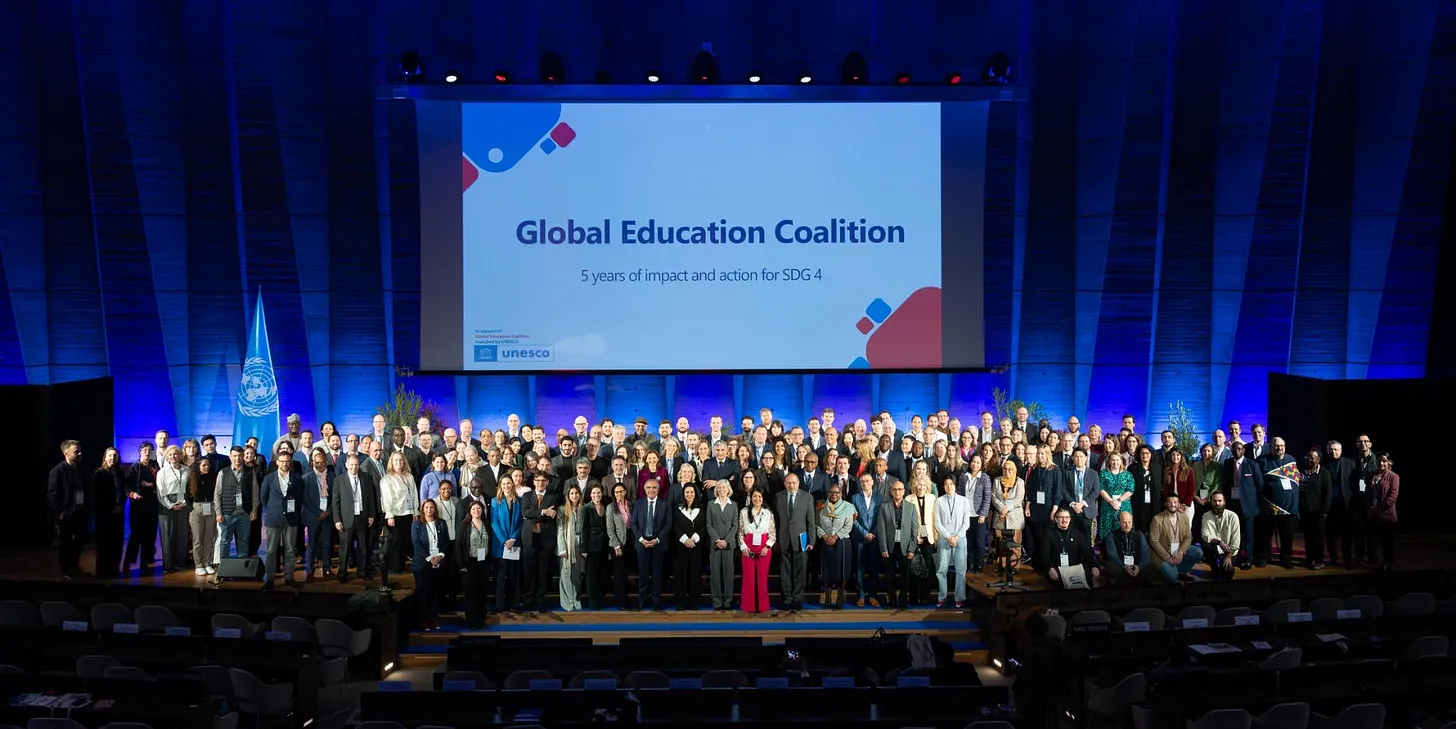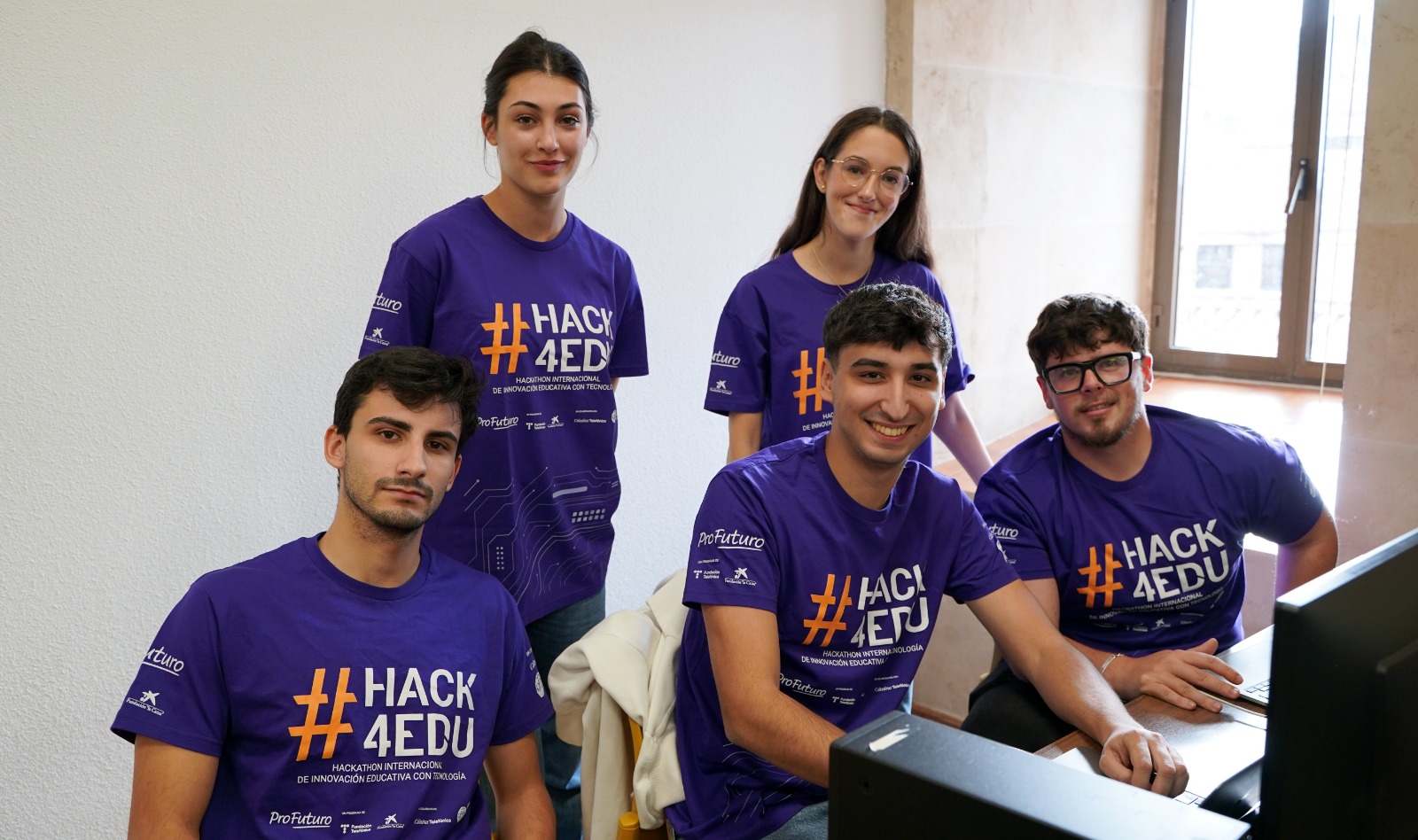On the occasion of International Africa Day, the auditorium of Telefónica Foundation Space hosted the seminar ‘The transformative power of e-education in Africa’ on Tuesday 27th May. Promoted by Fundación ProFuturo, an initiative promoted by Telefónica Foundation and the “la Caixa” Foundation, the event brought together teachers and experts of diAerent nationalities who, moderated by Patricia R. Blanco, journalist for Planeta Futuro El País, debated the present and future of education on the continent. Representatives from organisations such as UNHCR, Save the Children, WorldVision, Telefónica Foundation and the “La Caixa” Foundation also attended the event.
“ProFuturo started in Africa and that is something that is deeply symbolic”, said Juan Ramón Fuertes, president of Fundación ProFuturo, welcoming the attendees. “With more than 1.4 billion inhabitants, this continent is a continent of eternal promise. Talent is the key and teachers are the transmission lever. Despite the “challenge” of meeting the educational needs of its population, the achievements are also significant. “The rate of out-of-school children has droppedfrom 35% to 17%. Technology is not a magic wand, but it is a great ally”, he said. Today ProFuturo is the largest Spanish educational project in Africa. Last year alone, the programme reached 350,000 children, 14,000 teachers, 1,200 schools and 16 countries.
The first panel, entitled The State of Education in Africa: Challenges and Opportunities, featured Max Boqwana, CEO of the Thabo Mbeki Foundation (South Africa), whose mission is to drive Africa’s growth by promoting solutions to the challenges facing the continent. In his own words, its ultimate goal is to achieve “a peaceful, prosperous and integrated Africa, respected and valued by the world”. In the face of the continent’s “changing” reality, Boqwana advocates “real change”, always paying attention to its language, culture and, most importantly, “opportunities to move forward”.
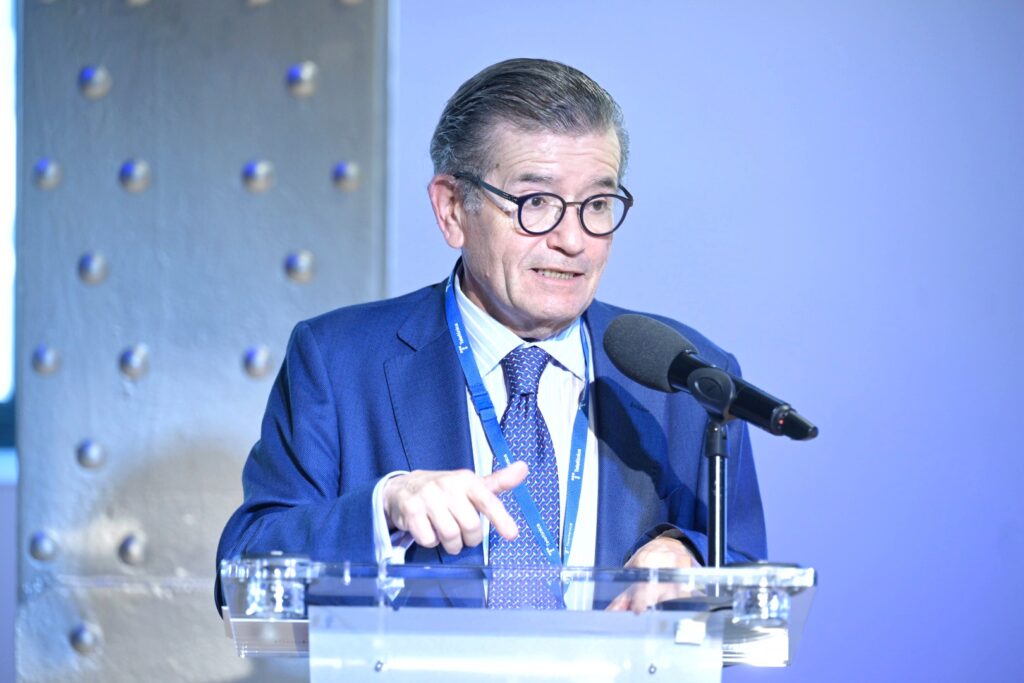
At the same table, Fr. Atta Barkindo, Executive Director of The Kukah Centre and Chairman of the Secretariat of the National Peace Committee (Nigeria) said: “We are trying to develop policies for education, peace-building and national cohesion,” he said. “I believe there are educational opportunities for all: women, girls and men. But the problem for women and girls is that there are cultural and religious factors that prevent them from accessing and taking advantage of these opportunities,” he lamented. “That is why we pay special attention to women, because their political participation is very low. But in areas where they do participate, the measures we develop can be implemented.
Egidia Umutesi, an education expert from World Vision (Rwanda) was also with them. After thanking ProFuturo and Telefónica for their support, she called on governments to “put more emphasis on education” because, despite the progress made, “a large proportion of the population are not attending school”, she stressed. “The real challenge is to transform education”.
Lola Martínez Bernabéu, head of ProFuturo Operations, Ariadna Bardolet, director of International Programmes at the “la Caixa” Foundation, and Coro Samblas, president of Matunda, an organisation aimed at helping people with disabilities and their families, were the members of the second round table: Educational projects for employability that lead the way. In addition to highlighting the importance of the local partners working with ProFuturo on the ground, Martinez also emphasised the “holistic approach” of the project: “ProFuturo not only provides tools, but also transforms learning and teaching processes, adapting them to the local context”. “We work on listening to needs, co-creating small businesses and providing opportunities”, Bardolet added. “The training we oAer is tailor-made and flexible: it adapts to the needs that arise over time”.
One of the most moving moments of the day came from Coro Samblas, who shared with the audience how a trip to Kenya was a turning point for her and her family, and how they learned to see “disability as an opportunity”. “Mothers would ask us how long we were going to help them,” she recalled. “That’s why we have to encourage them to take the lead. Special education, on paper, iscompulsory. But it was not being implemented. Now, the association is our life. A family that helps families like ours.”
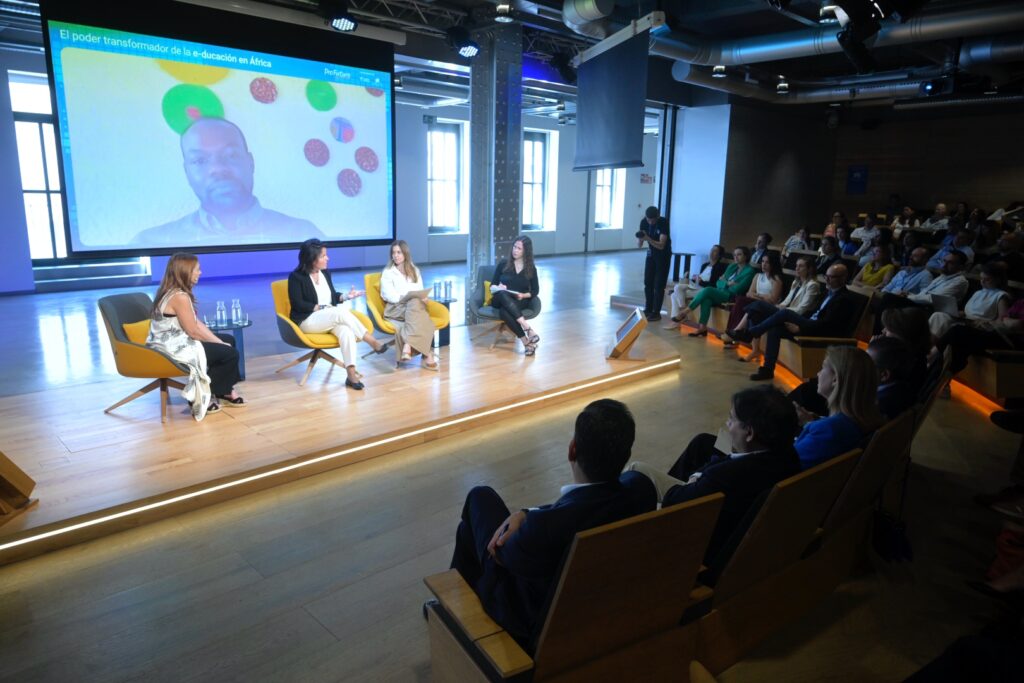
Francis Bizoza, founder of The African Traveller Teacher, participated in this second round table by video call. The son of teachers, he grew up in Uganda, “a region with amazing biodiversity, beautiful nature and bright young people”, but also with many limitations. “In Africa we have a quality learning and teaching gap, where 8-9% of ten year olds cannot read or understand a simple story”. He entered university without really knowing whether he wanted to go into teaching. Until a teacher who used technology in her classes made him fall in love with teaching. When he realised how undervalued teachers are and their frustration at the lack of resources, he began working to empower them. What started as a game, recording videos of his experiences and uploading them to his YouTube channel, turned into much more. “The approach we use with the African travelling teacher is to visit rural communities in Africa to engage rural schools with their teachers and students,” he explained. “In this way we can offer teachers new pedagogies and ways of teaching. But the most important thing is to show them how vital a role they play,” he concludes.
The third and final round table, Alliances to go further, was attended by Magdalena Brier, CEO of ProFuturo, and José Maria Gil Robles, President of the Spanish Committee of UNHCR. “Partnerships are fundamental to the stability of any project. We are looking for partners who will help us implement the programme, who are able to approach the schools where we play a role, partners who complement us from an educational or technological point of view, who will help us with international positioning or who will help us fund the project,” Brier said. In this regard, ProFuturo’s work in IDP settings is one of the most special and also one of the most important programmes. “Partnerships bring stability and sustainability to our equation,” Gil Robles added. “Government contributions are not growing proportionally; instead, they are being cut. That is why each alliance is important, and that they are credible actors, with whom we have affinity and with whom we can carry out an activity in the medium to long term,” he concluded.
Luis Prendes, CEO of Telefónica Foundation, was in charge of closing the event, with a final message that was translated into a tribute to the African continent: “After every voice that Africa’s name has invoked, I can only bow my head in tribute. When one hears the voice of Africa, one does not say goodbye, one simply kneels. Today I am not bringing an event to a close, I am letting the light that has shone here accompany us the rest of the way. May it remain a flame that does not ask permission to burn. Africa, I was taught, is not explained, it is felt. It is not depicted, it is remembered. If we cannot guarantee free and dignified education,then we are not progressing, but forgetting. In these times, ProFuturo has decided not to forget. It’s not just tablets or technology, you give back dignity”.



